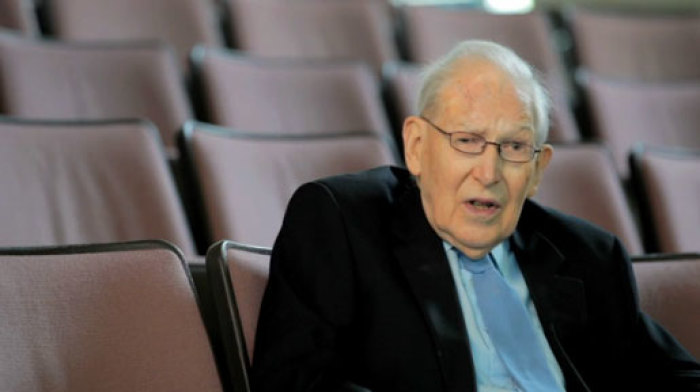JI Packer, author of ‘Knowing God,’ dies at 93

One of the world’s most renowned evangelical theologians, J.I. Packer, author of the bestselling book, Knowing God, died Friday at the age of 93.
The cause of death of James Innell Packer, widely known as J.I. Packer, is believed to be natural, according to his obituary.
Though born into a lower-middle-class family in a village outside of Gloucester, England, Packer, a lifelong Anglican churchman, wrote hundreds of Christian books and articles for nearly 70 years. He was educated at Oxford University on scholarships.
Paying tribute to the British-born Canadian Christian theologian, Justin Taylor, an executive vice president for book publishing at Crossway, wrote, “I can only add that in every single encounter that I was privileged to have with him, I came away thinking of him not as a great man, but as a man who had personally encountered a Great Savior.”
Jonathan Brook, lead pastor at Refuge Church in North Carolina, wrote on Twitter that Knowing God has been one of the most influential books in his life. “Thankful to God for the life and ministry of JI Packer.”
“If you want to judge how well a person understands Christianity, find out how much he makes of the thought of being God’s child, and having God as his Father,” reads an excerpt from the book. “If this is not the thought that prompts and controls his worship and prayers and his whole outlook on life, it means that he does not understand Christianity very well at all.”
Ivan Lambert, a sports correspondent for The Ledger, wrote on Twitter that when he read the book in 1988, he told his wife, “The God of this book is much bigger than I have ever heard in church in my 25 years.”
In 2016, the John Richard Allison Library in Vancouver, which is jointly owned by Regent College and Carey Theological College, digitalized numerous rare Puritan volumes from the 17th and 18th centuries, including books from Packer’s personal library.
Packer spent the first half of his life in England and the second half in Canada, but he was “perhaps most popular in the United States,” Taylor wrote.
“He called for the church to take holiness and repentance seriously by walking in the Spirit and fighting against indwelling sin,” Taylor added. “He defended biblical authority and championed the cause of disciple-making catechesis. And he reintroduced multiple generations to his beloved Puritan forebears, whom he regarded as the Redwoods of the Christian faith.”
Packer has been described as “an unsung hero as well as a famous man.”
“Despite his celebrity status … Packer has been indefatigable in giving himself to people and projects in ways that are invisible to the public,” wrote Leland Ryken of Packer in a 2016 piece titled, "10 Things You Should Know About J.I. Packer" published by Crossway. “No audience is too small for Packer and such venues as speaking to teenagers in a living room have been a standard feature of his life.”
Packer believed that the most important project of his life was the English Standard Version of the Bible, for which he served as general editor anonymously.
Packer had a lifechanging experience in 1933, when he was 7 years old. A bully chased him from the schoolyard onto Gloucester’s London Road and a bread van knocked him to the ground, added Ryken, who served as professor of English at Wheaton College for nearly 50 years and is the author of the biography, J. I. Packer: An Evangelical Life. Packer received a grievous head injury, which remained visible in the side of his skull.
Packer, who was raised in a nominally Anglican family and church, converted soon after he entered Oxford University where he attended an evangelistic service sponsored by the campus InterVarsity group. While he had defended Christianity in school debates earlier on, he realized that he was not a true Christian.




























